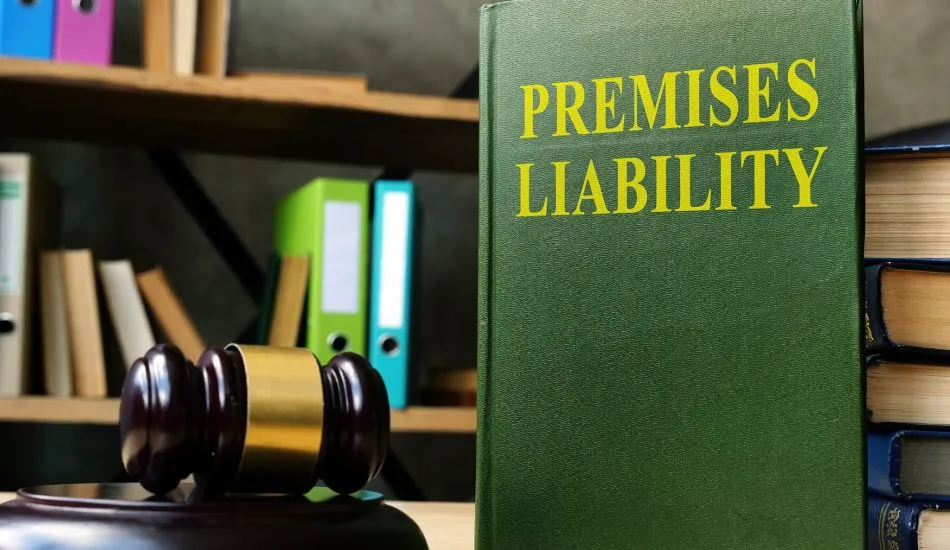|
|
Last Modified on Dec 09, 2024
If you or a loved one has recently been injured in a slip and fall accident, then it might be the ideal time to talk to an experienced lawyer about your rights. Pursuing a slip and fall lawsuit is an important step that can help you access available compensation to pay for medical bills, lost, wages, and more.
It might feel overwhelming to pursue a lawsuit right now, especially if you are still recovering from a slip and fall accident. But rest assured knowing that an experienced attorney helps to simplify the process as much as possible. Let the pros handle the details so that you can focus on your recovery without worrying about the bills that are piling up.
Consider these tips if you are considering your options to file a slip and fall lawsuit:
Do You Have Grounds for a Lawsuit?
There are many factors that must be considered to determine whether you have grounds for filing a lawsuit. If you fell on someone else’s property and you were injured, then it means that you might be able to access compensation for your injuries. A slip and fall accident can be categorized under premises liability, which means that the property owner might be at fault for your injuries.
But keep in mind that not every fall will result in a lawsuit. In order to move forward with these legal steps, your attorney will want to make sure that you can show how the property owner was to blame. Your successful slip and fall lawsuit depends on the proof of negligence.
Determining Causation and Negligence
Do you have evidence that shows how the property owner or property occupier didn’t meet their duty of care? If irresponsible behavior occurred and it contributed to your accident and injuries, then you will need to work with your lawyer to build a case. The intent is to prove the responsibility because the at-fault party will need to pay the financial consequences for damages.
One thing that can make a slip and fall lawsuit complicated is when there are different people or entities involved. For example, if the person occupying the property is not the owner of the property, then your lawyer might recommend a different approach for your lawsuit.
It’s critical to make sure that you can show the negligence by understanding which party holds the responsibility for maintaining the property. If a hazard is present, then it’s their responsibility to provide a warning and fix the problem. Otherwise, it’s considered a negligent situation… which means the person or entity could be found responsible for accidents and injuries that occur as a result of the issue.
Components to Establish Negligence
Without negligence or proof that your accident could have been prevented, you won’t have a strong slip and fall lawsuit. So, your attorney will work to build your case in a way that proves negligence so that you can get the ideal compensation for your injuries and medical bills.
Several components of negligence will be built into the case, including a demonstration that:
- The occupier or property owner had knowledge of the risk or caused the hazardous condition. They didn’t exercise reasonable action to reduce the risk.
- The person at fault had reasonable opportunity to correct the problem but didn’t follow through with the appropriate actions.
- The fault of this person was the direct reason why your injury occurred.
- This injury resulted in harm and consequences in your life.
As you are building your case, it’s important to collect as much evidence as possible. Your attorney will ask for photos and videos from the accident scene. Other forms of evidence might include witness testimony, medical records, expert consultations, and more.
Hazardous Conditions that Can Result in a Slip and Fall Lawsuit
A personal injury lawsuit can be used for injuries on both residential and commercial properties. There are many types of hazardous conditions that can result in an accident and injury:
- Uneven flooring
- Wet floors
- Loose or bulging carpet
- Loose floorboards
- Potholes
- Uneven sidewalk cracks
- Obstacles on the floor
- Spills that aren’t cleaned up
- Icy walkways or packing lots
- Dim lighting
- Insufficient safety equipment
If any of these conditions develop, then the property owner and/or occupier must take action to correct the issue. Additionally, anyone on site must be notified about the risk and dangers due to the conditions.
Compensation for a Slip and Fall Lawsuit
What type of compensation should you expect when a slip and fall accident occurs? Just because you fall, doesn’t automatically mean that you are entitled to a large payout. The actual compensation depends on a variety of factors, such as the severity of your injuries, how the injuries are affecting your quality of life, associated costs for medical treatments and recovery, and more.
Your slip and fall lawyer will offer recommendations to help you maximize available compensation. Some of these things are easy to quantify, such as medical bills. For example, you can add up all of the bills that are coming through for doctor appointments, treatments, and medical services. Additionally, calculating lost wages can also be relatively straightforward based on your work schedule and past paychecks.
On the other hand, there are certain types of personal injury compensation that can be more difficult to quantify. A good lawyer will help you build a strong case so you can maximize the amount of money received for things such as pain and suffering or emotional consequences.
Additionally, if gross negligence is a factor, then the judge might decide that punitive damages are appropriate. This amount of compensation isn’t about you and your injuries – instead it is designed to give the perpetrator a larger punishment to reduce the risk that they will repeat these mistakes again in the future.
Talk to the Best Personal Injury Attorneys for Slip and Fall Cases
If you want to know how to win a slip and fall lawsuit, then it’s time to reach out to our expert team. We are happy to answer your questions and provide recommendations for building a strong case that will bring in the compensation you deserve. Call Gainsburgh, Benjamin, David, Meunier & Warshauer, L.L.C. at (504) 522-2304.





